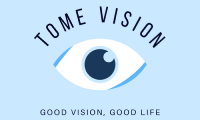The Link Between Diet and Eye Health
Introduction:
Maintaining good eye health is crucial for overall well-being and quality of life. While most people are aware of the importance of regular eye exams and protecting their eyes from harmful UV rays, many overlook the impact that diet can have on eye health. The saying “you are what you eat” holds true when it comes to the eyes as well. A nutrient-rich diet plays a significant role in preventing age-related macular degeneration (AMD), cataracts, dry eyes, and other common eye problems.
Subheading 1: Key Nutrients for Healthy Eyes
1. Omega-3 Fatty Acids:
Omega-3 fatty acids are essential for maintaining the health of the eye’s retinal tissue. They can be found in fatty fish such as salmon, tuna, and sardines. Consumption of these fish at least twice a week can reduce the risk of AMD and dry eyes. For individuals who do not consume fish, omega-3 supplements derived from algae or flaxseed oil can be a suitable alternative.
2. Vitamins C and E:
Vitamin C and E are powerful antioxidants that protect the eyes from damaging free radicals. Citrus fruits, berries, leafy greens, and nuts are excellent sources of these vitamins. A diet rich in these nutrients can reduce the risk of cataracts and delay the progression of AMD.
3. Lutein and Zeaxanthin:
Lutein and zeaxanthin are carotenoids that form the yellow pigment in the macula of the eye. They act as natural sunscreens, protecting the eyes from harmful blue light and reducing the risk of AMD and cataracts. Leafy green vegetables like spinach, kale, and broccoli are abundant in these compounds.
Subheading 2: Foods to Include in Your Diet
1. Leafy Greens:
As mentioned earlier, leafy greens such as spinach, kale, and collard greens are rich in antioxidants, vitamins, and minerals essential for eye health. They are packed with lutein and zeaxanthin, protecting the eye’s macula from oxidative damage. Add a handful of spinach to your salad or sauté some kale as a side dish to boost your eye health.
2. Colorful Fruits and Vegetables:
Fruits and vegetables with vibrant colors indicate high levels of antioxidants, which are beneficial for eye health. Include colorful produce like oranges, bell peppers, berries, and carrots in your diet. These fruits and vegetables contain high levels of vitamins A, C, and E, which help combat oxidative stress and reduce the risk of eye diseases.
3. Nuts and Seeds:
Nuts and seeds are rich in omega-3 fatty acids, vitamin E, and zinc, all of which are crucial for maintaining healthy eyes. Snack on a handful of almonds, walnuts, or sunflower seeds instead of processed snacks to support your eye health.
Conclusion:
A healthy diet that includes key nutrients like omega-3 fatty acids, vitamins C and E, lutein, and zeaxanthin can significantly improve eye health and reduce the risk of age-related eye diseases. Green leafy vegetables, colorful fruits and vegetables, and nuts and seeds should become staples in everyone’s diet. While diet alone cannot completely prevent eye problems, it can certainly play a vital role in supporting overall eye health. Remember, taking care of your eyes begins with what you put on your plate!
